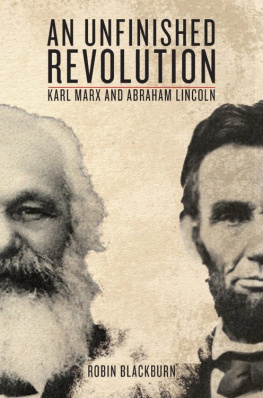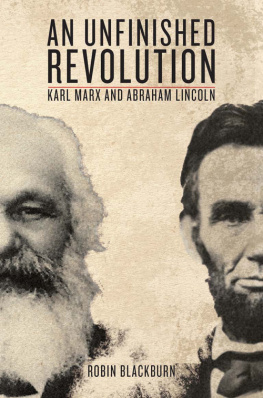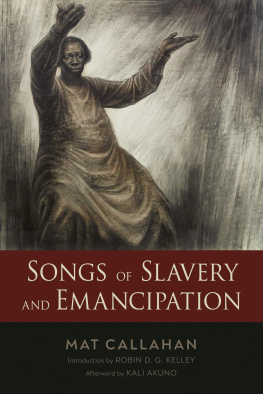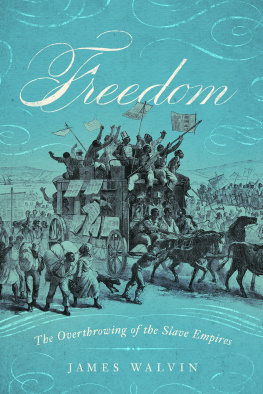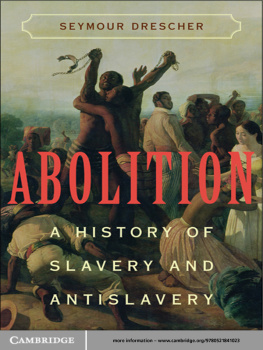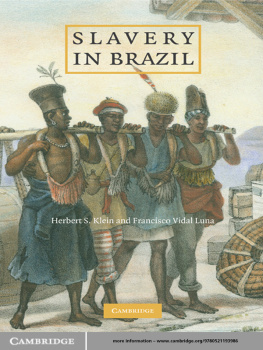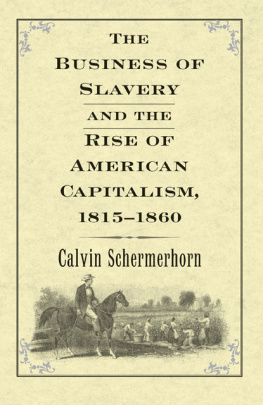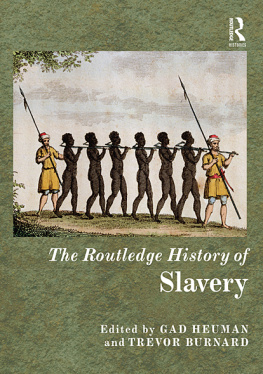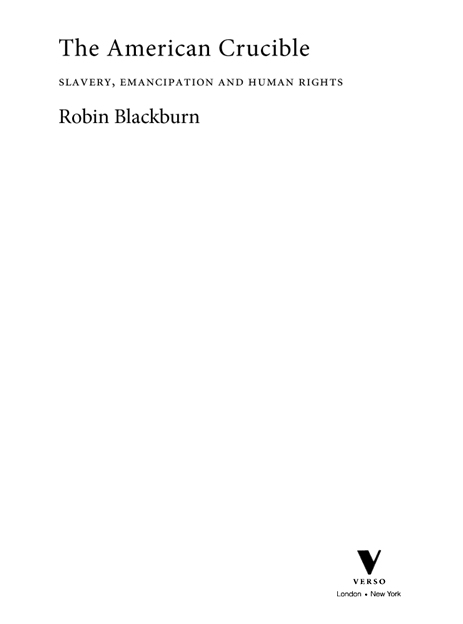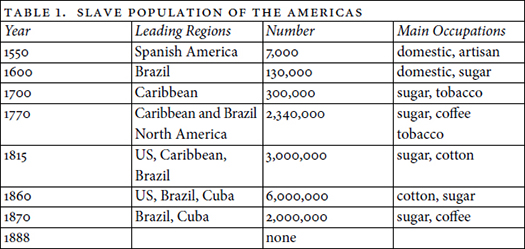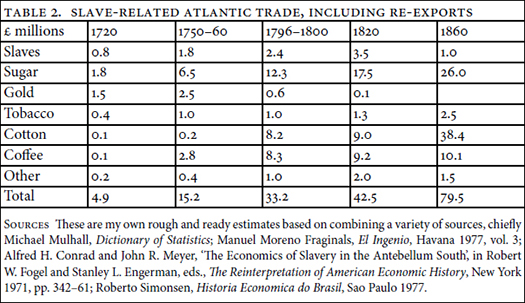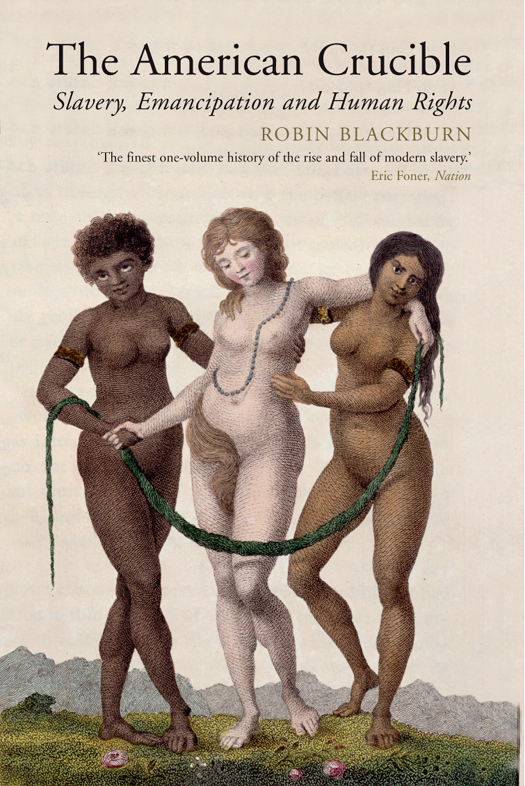
Of the thousands of historians who have written about Atlantic slavery and its abolition, only a handful have ever given us a really original perspective on that vast subject Robin Blackburn is prominent even pre-eminent among those few The American Crucible poses a challenge for the political future as well as a bold reappraisal of the historical past.
Stephen Howe, Independent
Blackburn describes emancipation in all its vexed, indeterminate grandeur, propelled by violent clashes, public debate, harrowing exposs, and the consolidation of new notions of freedom and equality.
Greg Grandin, Guardian
The book is an outstanding example of a major trend in recent historical writing: looking beyond national boundaries in favor of Atlantic or transnational history.
Eric Foner, Nation
The best treatment of slavery in the western hemisphere I know of. I think it should establish itself as a permanent pillar of the literature.
Eric Hobsbawm
Robin Blackburn has already secured his position as Britains pre-eminent historian of slavery. This new volume confirms that position. It is an important contribution to our understanding of the shaping of the modern western world.
James Walvin, BBC History Magazine
Blackburn writes authoritatively across centuries and continents.
Joseph P. Reidy, Journal of American History
Blackburn describes and stakes a position on a number of the most contested issues in the history of slavery.
Alan Singer, Encounter
A marvellous book insightful and stimulating.
Stanley Engerman, University of Rochester
A magisterial history of transatlantic slavery.
Ian Thomson, Times Literary Supplement
ROBIN BLACKBURN is the author of The Making of New World Slavery: From the Baroque to the Modern, 14921800 and The Overthrow of Colonial Slavery, 17761848. He teaches at the University of Essex in the United Kingdom, where he holds a Leverhulme research award, and was Visiting Distinguished Professor at the New School for Social Research in New York from 2001 to 2010. He is a contributor to New Left Review and a member of its editorial committee.
This paperback edition first published by Verso 2013
Robin Blackburn 2011, 2013
All rights reserved
The moral rights of the author have been asserted
Verso
UK: 6 Meard Street, London W1F 0EG
US: 20 Jay Street, Suite 1010, Brooklyn, NY 11201
www.versobooks.com
Verso is the imprint of New Left Books
eISBN: 978-1-78168-228-9
British Library Cataloguing in Publication Data
A catalogue record for this book is available from the British Library
Library of Congress Cataloging-in-Publication Data
A catalog record for this book is available from the Library of Congress
v3.1
For Honor Elizabeth
Contents
Acknowledgements
Thanking the many people who have helped me in the writing of this book is extraordinarily difficult as my research of the topic spans nearly three decades. I am particularly grateful to Perry Anderson, who once again read the manuscript in its entirety and made a host of valuable suggestions. Stanley Engerman also read the whole book and saved me from serious mistakes. Both found quite a lot to disagree with and thereby helped me to reformulate my argument but not necessarily in ways that they will approve. Others read parts of the manuscript and I am grateful for their help, particularly John Ashworth, Matthias Rhrig Assuno, John Clegg, Laurent Dubois, James Ingham, Jeremy Krikler, Bruce Levine, Manisha Sinha and Christopher Schmidt-Nowara. I have taught courses on slavery and anti-slavery at the University of Essex in the UK and the New School for Social Research in New York. I am most grateful for the lively discussions with students that often ensued. As for innumerable conversations with colleagues, I know I have learnt a lot without being able to cite precise names and dates. I owe a special debt to Dale Tomich, Ricardo Salles, Rafael Bivar Marquese and the other members of the Second Slavery Research Network. I have greatly benefited from attending their meetings. I would like to thank Lisabeth During and Ross Poole for hospitality, and stimulating conversations, in Brooklyn. I thank Lorna Scott Fox for her superb copy-editing, saving me from many infelicities. Finally I acknowledge a Leverhulme fellowship that enabled me to complete the book.
Robin Blackburn
London, January 2011
Introduction: Slavery and the West
The conquest and colonization of the New World by the early modern European states was a decisive step in the global rise of the West. The gold and silver which obsessed the conquistadors were just a beginning. America was vast and fertile, and its peoples had domesticated and developed a tempting array of foodstuffs and intoxicants. European traders and colonial officials were able to throw the rich produce of the American cornucopia into what was now for the first time a truly global balance of exchanges. Great toil was required to wrest precious metals from the earth, to construct fortified imperial lines of communication, and to cultivate and process such premium products as sugar and tobacco, cotton and indigo. The European conquerors and settlers soon learned how to reinforce and multiply their own efforts by introducing African captives, and using them to strengthen empire and boost the output of the coveted export staples. These processes had their roots in Europes own needs and desires, and in the emergence of a new political economy a new type of state, a new class of merchant and a new type of producer and consumer. The Absolutist state and the early capitalist economy drove a process of imperial and commercial expansion which soon overstretched the labour power available to it. The introduction of millions of Africans, and their subjection to a hugely demanding regime of racialized slavery, was seized upon as the solution to the problem. Between 1500 and 1820 African migrants to the New World outnumbered European migrants by four to one.
The Atlantic slave trade and the slave systems it served met resistance from the captives and troubled a few observers, but aroused no public controversy until the last decades of the eighteenth century. During the first century or so after Cortss arrival, the conquest and enslavement of native peoples, with its tens of millions of victims, constituted one of the great disasters of human history: the number of victims is exceeded only by the total losses of the Second World War. The destruction of the Indies eventually aroused widespread condemnation and, as we shall see in the first chapter, led the Spanish royal authorities to discourage the outright enslavement of the indigenous population. Unfortunately, around the same time, they also licensed a trade in African captives to the New World. At first the sorts of work to which the slaves were put were various. They were domestics, gardeners, masons, carpenters, peddlers, and hairdressers, and some eventually managed to purchase their manumission. But this traditional Mediterranean pattern of slavery gradually gave way to a new type of enterprise, the plantation, which was based on a great intensification of slave work and slave subjection. This institution was to have a career of nearly three centuries during which it was responsible for an extraordinary boom in output, and eventually for great changes in the power and prosperity of the West in relation to the rest of the world.


